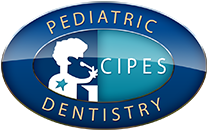Make Every Bite Count

On December 29th the US Department of Agriculture (USDA) and the Department of Health and Human Services (HHS) released updated nutritional and dietary recommendations for the American public.
First published in 1980, the Dietary Guidelines for Americans provide science based advice on what to eat and drink to promote health, reduce risk of chronic disease and meet nutritional needs. Today more than half of adults have one or more diet related chronic diseases. Consequently, these updated recommendations now focus on healthy individuals as well as those who are overweight or at risk of chronic disease. The new emphasis on a lifespan approach highlights the importance of healthy eating at every life stage from infancy through older adulthood.
For the first time, the 2020-2025 Dietary Guidelines include recommendations for infants and toddlers. For the first six months of life, exclusively feed infants human milk. Continue this for the first year and longer if desired. Feed infants iron fortified infant formula during the first year if human milk is unavailable. Provide infants supplemental vitamin D beginning soon after birth. At about 6 months of age, introduce infants to nutrient dense complementary foods and to potentially allergenic foods. Encourage the consumption of a variety of foods from all food groups and include foods rich in iron and zinc, particularly for infants fed human milk. Avoid juice during the first year of life and try to wean your baby from the bottle by age one.
After age one we recommend that you limit juice and offer whole fruit rather than juice. Children 12-24 months should drink no more than ½ cup of 100% fruit juice a day. This is because juice, even 100% fruit juice can contribute to dental cavities, and if kids drink more than is recommended it can have other negative health impacts such as weight gain. Avoid flavored milk, toddler formula, caffeinated beverages; sugar sweetened beverages, and low calorie artificially sweetened beverages. Evidence does not support the use of plant based non-dairy milks as a full replacement for regular milk because with the exception of fortified soymilk, many lack key nutrients found in cow’s milk. Unsweetened and fortified nondairy milks can be a good choice if a child is allergic to dairy, lactose intolerant or is in a family that does not eat dairy products. Be sure to seek the advice of your pediatrician or a dietician before deciding on a plant based or non- dairy milk product.
Healthy alternative beverages for toddlers are cow’s milk and fluoridated water. Plain water provides the hydration all of us need to live. Milk provides calcium, vitamin D, protein, vitamin A, and zinc―all essential for healthy growth and development. Offer milk, water or 100% juice at mealtime and consider water the only beverage you offer “on the go”.
For a more information on the new dietary recommendations for infants and toddlers, visit https://healthydrinkshealthykids.org/

